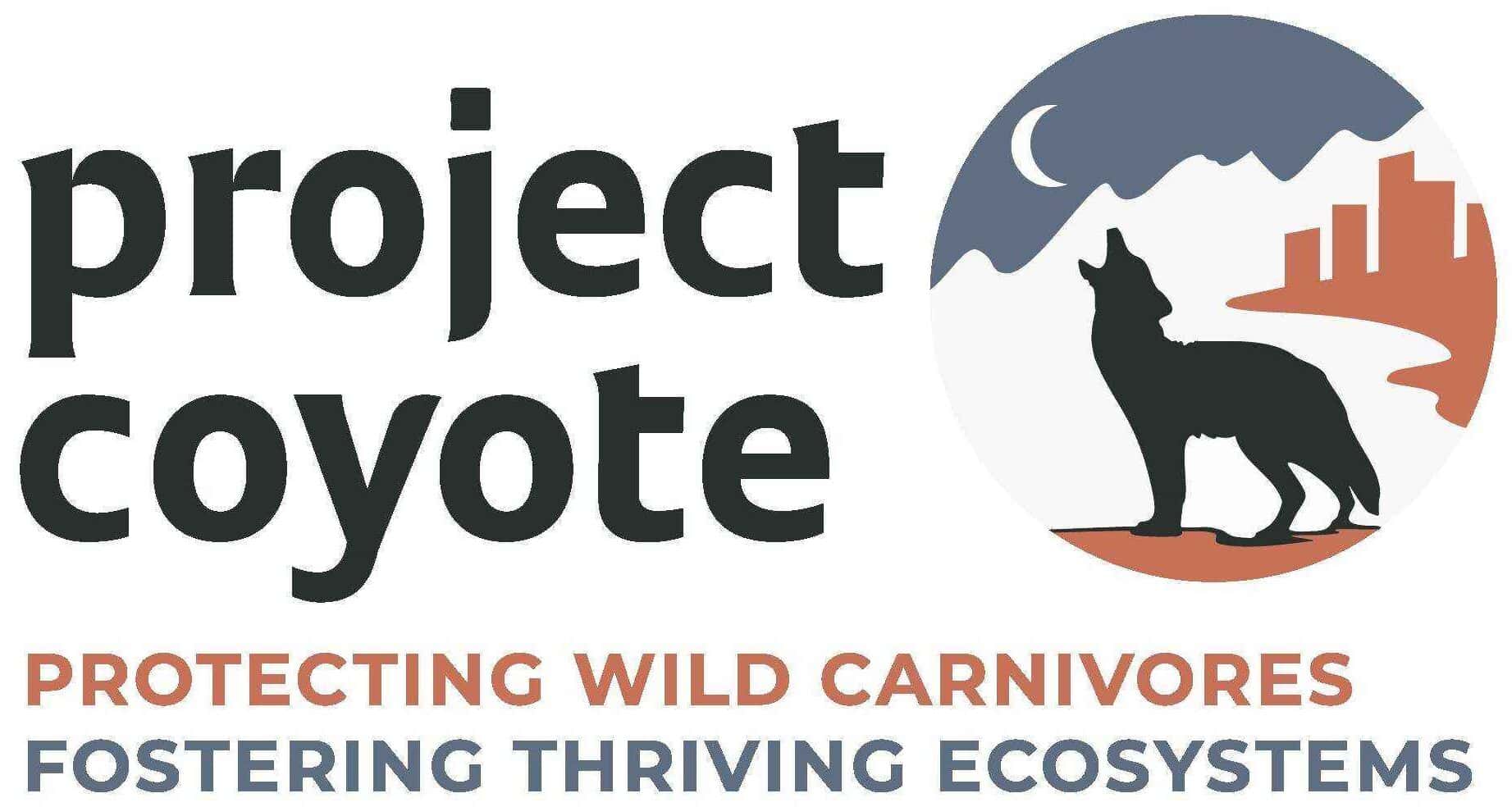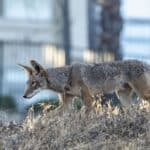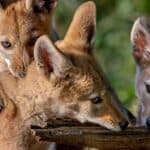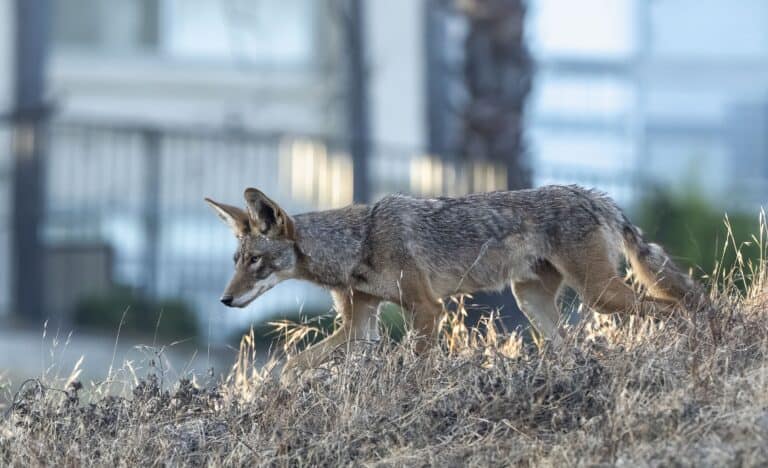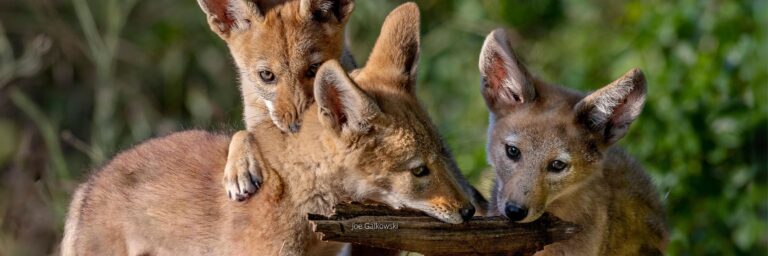Notes From The Field Blog by Francisco J. Santiago-Ávila, Midwest Science & Conservation Manager for Project Coyote & The Rewilding Institute.
I’m very much an immigrant: to the Midwest, to science and to rewilding. And yet, as with coyotes in the eastern U.S., I feel at home. I was born and raised in San Juan, Puerto Rico. I was a working-class city kid that did not spend much time out in nature, except for the occasional beach trip.
At the University of Puerto Rico, my undergraduate focus was political theory and economics. My objective in my studies was, and still is, finding ways to promote care and justice towards others. I first became interested in environmental concerns through my undergraduate studies, as I was introduced to the environmental destruction brought on by capitalism to the most vulnerable, historically oppressed, and least responsible communities.
Those same interests drove me to migrate to the States to pursue graduate studies in public policy and environmental management. During my graduate studies, I used ecological economics to make a case for conservation. This line of thinking, for example, argues for putting a dollar value on a species’ ecosystem services to justify the species’ continued existence.
But my stint in ecological economics did not last long. As I finished grad school and landed a research position, I was already feeling a growing discomfort with my focus on monetary valuation of nature. To state it simply, and applied to myself, it did not feel right for me (or anyone else) to make a case for protecting me because my monetary value is $X. That reasoning seemed to lead back to the same market systems and politics, with all the dismissal of vulnerable others, that I wanted to challenge.
Living beings are so much more than their monetary value. In fact, what’s most important about living beings is unquantifiable, even ineffable.
While finishing my masters, I was already enthralled by the debate over gray wolves from a public policy perspective and had written a paper about its national politics. I was convinced that the critical needs to resolve this ‘wildlife resource controversy’ (as phrased in my PhD Statement of Purpose) were strictly scientific. Yet I wasn’t a scientist in any way. So I needed to become one if I wanted to contribute anything. I moved to the Midwest to become one, and I have. Since then, I’ve published a number of scientific articles evaluating how wolves from different populations experience periods of lower protections, which increase the rate of wolves being killed both legally and illegally. I’ve also researched the impact of lethal and non-lethal interventions on wolves and domestic animals – lethal methods may minimally decrease the risk of predation in a small proportion of implementation sites, but they increase the risk of predation at adjacent sites by almost three times relative to non-lethal methods. It was within that journey that gray wolves ultimately became a catalyst for a shift in my worldview to one starting from an ethic of care and multispecies justice. Wolves taught me about the importance of foregrounding nonhuman otherness, which means striving for compassionate, respectful relationships with nonhuman lives from a position of effective relationality and interdependency.
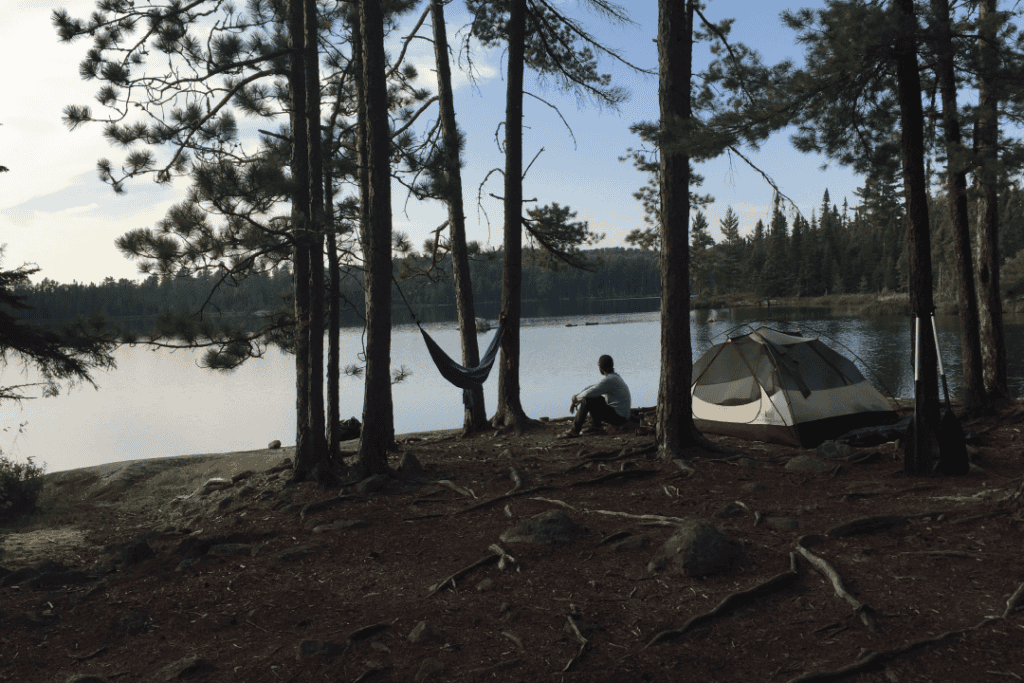
After moving to Madison in 2015, my spouse and I first visited the Boundary Waters in 2017. It has become an unmissable yearly destination since then.
Not only wolves, but coyotes, bears, cougars, wolverines and other nonhumans were persecuted with intent to exterminate (and they are all still persecuted) until the middle of the last century because they were seen as both harming human interests and lacking instrumental value for humans. Of course, there was no recognition of predators’ intrinsic value.
In fact, that very perspective is entrenched within institutionalized wildlife management in the U.S., thanks in large part to the co-opting of the American public by the instrumental, wise-use paradigm of Teddy Roosevelt and his friend—and the first Chief of the U.S. Forest Service—Gifford Pinchot. They also advanced scientific, technocratic wildlife management – but, and this is critical to understand, were loyal to that instrumental value paradigm. Such a perspective translated to Roosevelt describing wolves as “beasts of waste and desolation” and advocating for their extermination. However, as Western scientists revealed what First Nations have known for centuries—that predators play important ecological roles that benefit the community of life—the public began to argue for their ecological value and protection. In response to this widespread shift in mindset, public agencies accommodated these concerns. Thus, a new paradigm in carnivore conservation was institutionalized around the 1960s and ‘70s in which populations would be protected but negative impacts on human interests would be mitigated, including by lethal means.
To this day, human claims are primary when it comes to predator management, followed by population viability. Concern for wolves, other predators or their claims (to life, wellbeing, freedom from harm) is limited, if there is even any.
Despite a focus on the science behind wildlife management, the most important dimensions are clearly and unavoidably ethical. Globally, the ethical worldviews dominating conservation are rooted in a human exceptionalism that dismisses not only nonhuman life, but most humans as well. Specifically acknowledging the value of ecological wholes (e.g., ecosystems, populations, species) while ignoring that of nonhuman individuals harms beings who have their own considerations and interests that should be respected. Exclusively acknowledging the value of humans and ecological wholes retains the same historical dismissal of nonhuman beings, in which the latter remain disproportionately vulnerable to human harms by simply being considered expendable, a nuisance, or merely a target for recreation.
Notice how management plans and policies never start with who nonhuman animals are internally, or consider their claims alongside those of humans and ecological wholes. Despite the enormous ethical implications, there is plenty of ‘best-available science’ (BAS) on this topic that never gets highlighted (or even mentioned) in arguments purportedly promoting the use of BAS in policy, which still suggests the promotion of a human-centered ‘science-based management’.
To take wolves as an example (but this is generalizable to many species and taxonomic groups), there is incontrovertible scientific evidence of wolves having rich internal and social lives. We know, as with humans, wolves are feeling, thinking, self-aware beings. We know they know and value themselves and each other, and nurture those social bonds. For philosopher Mary Midgley, such foundational traits, including being alive – striving or having a ‘will to live’ in the words of Albert Schweitzer – are indispensable for moral thinking because they highlight how the experiences of other beings can be sufficiently like our own. This familiarity allows us to empathize, which is the first step toward morality. Additionally, wolves hold ecological relationships with other animals that support our entire community of life – the only statement in this paragraph you may ever find in an Euro-North American wolf policy document.
Consider the institutionalized, Euro-North American management alongside the type of coexistence with ma’iingan (gray wolves) proposed traditionally by many Ojibwe. The Ojibwe do not rely on the Western scientific-technological complex, but nevertheless have a more advanced, holistic understanding of wolves. Ma’iingan is respected as: a nonhuman person with all the capabilities recently supported by Western science, as a holder of ecological relationships, and as a relative to humans. Hence the Ojibwe generally oppose wolf population control, tolerate infrequent conflicts as a natural occurrence and a fair exchange for living with your relative, who also benefits you in other ways, and are much less supportive of harmful and lethal policies and interventions. The Ojibwe worldview does not require research on how many wolves can be killed sustainably, or what the most effective lethal methods to reduce predation are.
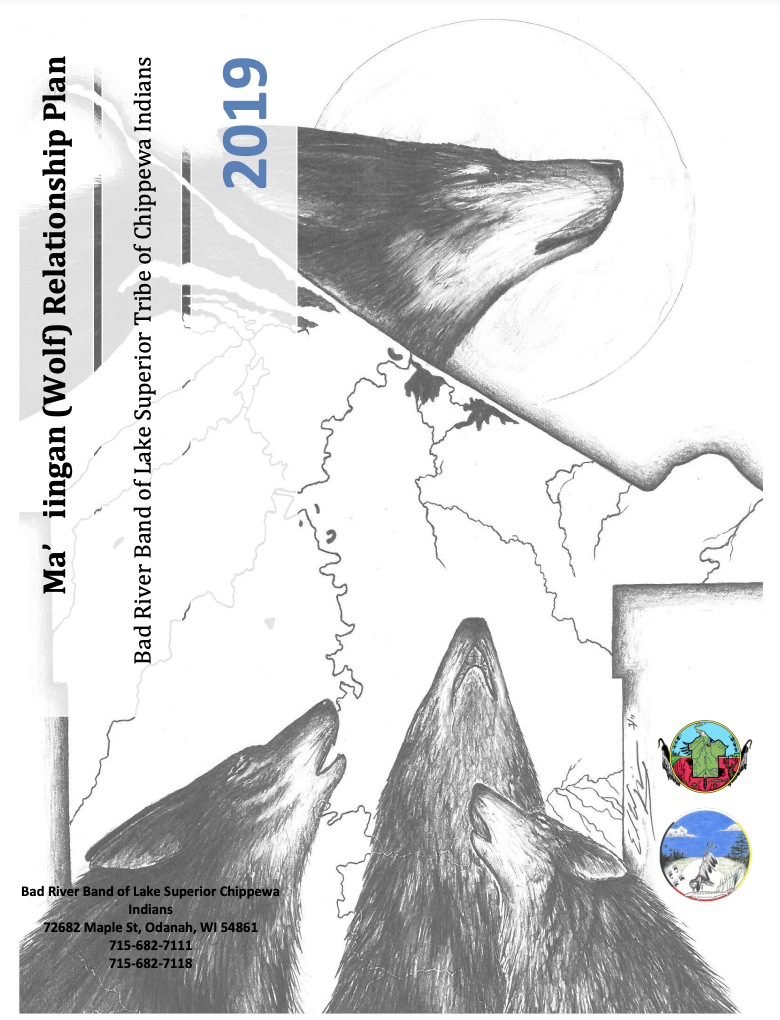
Example: The Bad River Band of Lake Superior Tribe of Chippewa Indians’ Ma’iingan (Wolf) Relationship Plan (2019) foregrounds wolves as persons and relatives, and appropriate relationships with them.
There are two big take-aways here:
(1) Science is and will always be at the service of the worldviews that motivate it.
(2) The foundational discussion with regard to our relationship with other non-human beings needs to be about worldviews, not about science. As Mary Midgley writes “metaphysics is not a luxury”.
The Ojibwe view of wolves is more accurate when compared with what Western disciplines have also ‘discovered’ about who wolves are. Notice how who the Ojibwe consider wolves to be converges with what both their worldviews and holistic Western understanding espouse. Meanwhile, Euro-North American managers consider wolves to be mainly resources, despite having access to the same Western disciplines. The point is: we need to begin by questioning not the science itself, but the worldviews, values and objectives underlying those partial facts arrived at through science. Science is a tool, and just like any tool, it can be employed for good and bad. To discuss good and evil, we need to have a conceptual structure of our world, know our place in it, and have a map to orient us to how it all is and how it could be (a ‘worldview’ or metaphysic). This will in turn forge our identity and lead us to consider ethics; how we ought to live with others, human and nonhuman. Only with foundational agreement on who nonhuman animals are and their intrinsic value can we hope to save them, and ourselves in the process. As Mary Midgley writes in the closing of her seminal Beast & Man:
“[Humans] can be neither understood nor saved alone.”
Stay tuned! In my next entry, I will continue exploring the above by discussing how some Western perspectives, most notably ecofeminist nature ethics, multispecies justice and deep ecology, converge in their foregrounding of otherness, care and respect towards nonhuman animals.Be sure to check your email and in the meantime, you can learn more about wolves and the work to protect them by visiting the Protect America’s Wolves webpage.
